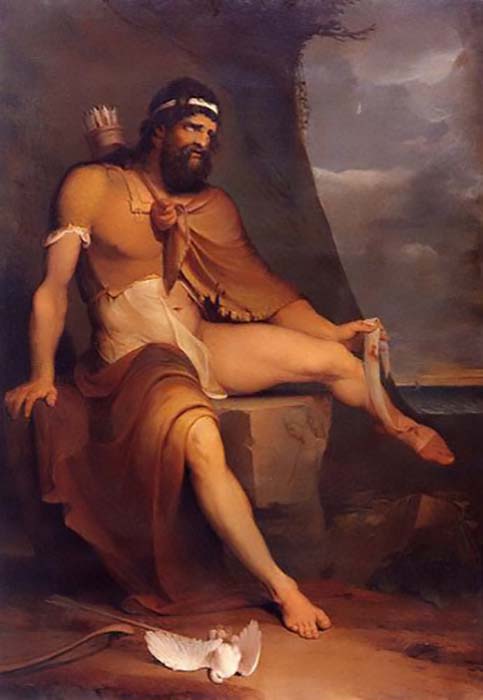Philoctetes
Philoctetes (Ancient Greek: Φιλοκτήτης ), or Philocthetes, according to Greek mythology, was the son of Poeas, king of Meliboea in Thessaly, and Demonassa.
He was a Greek hero, famed as an archer, and a participant in the Trojan War.
Philoctetes was the subject of four different plays of ancient Greece, each written by one of the three major Greek tragedians. Of the four plays, Sophocles' Philoctetes is the only one that has survived. Sophocles' Philoctetes at Troy, Aeschylus' Philoctetes and Euripides' Philoctetes have all been lost, with the exception of some fragments.
Philoctetes is also mentioned in Homer's Iliad, Book 2, which describes his exile on the island of Lemnos, his being wounded by snake-bite, and his eventual recall by the Greeks. The recall of Philoctetes is told in the lost epic Little Iliad, where his retrieval was accomplished by Diomedes. Philoctetes killed three men at Troy (plus prince Paris – either through an arrow shot through his eye or by hitting him with one of his poison arrows).
The story of Philoctetes
Philoctetes was the son of Poeas and his wife Demonassa (or Methone).
Poeas was king of Meliboea in Thessaly, but he is more famous as a hero than a king, for Poeas was often named as one of the heroes who sailed on the Argo with Jason.
Philoctetes himself comes to prominence with the death of another Greek hero, indeed the greatest of all Greek heroes, Heracles. The common story tells of Heracles dying after being infected with the poisonous blood of the Lernaean Hydra, having worn the robe presented by his wife Deianira.
This robe was the Shirt of Nessus which was coated in the blood of the dead centaur whom Heracles had previous killed. Heracles recognised that he was dying, for nothing could be done to cure him of the blood of the Hydra, and so, in Trachis, Heracles constructed his own funeral pyre, but no-one would light the pyre for him.
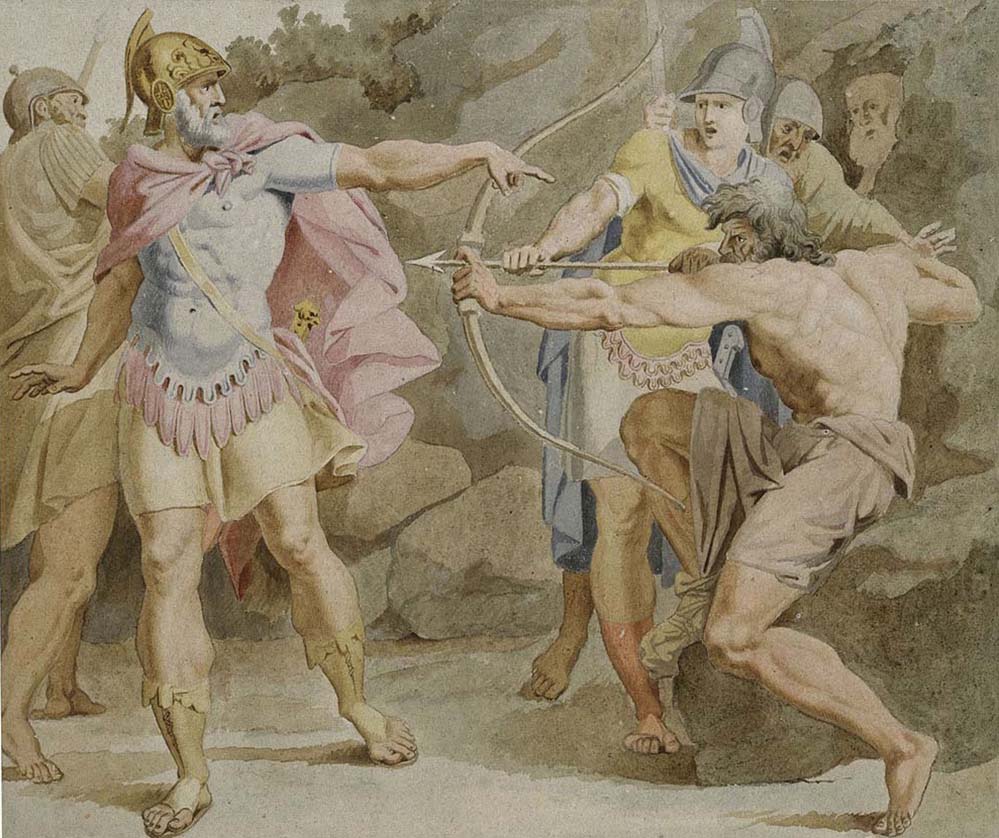
Heracles called upon all those who passed by the pyre to light it, but everyone refused until Philoctetes passed by. Philoctetes did not expect payment for helping out Heracles, but in gratitude Heracles gave Philoctetes his famous bow and arrows. This act of Philoctetes allowed for the Apotheosis of Heracles, and Heracles was thus transported to Mount Olympus.
Other versions of the myth tell of the funeral pyre being lit by Poeas, an old comrade of Heracles, for both had been Argonauts, and it was from his father, that Philoctetes inherited the bow and arrows of Heracles. Alternatively, Philoctetes was not a passer-by, but was already a companion of Heracles, and his armour bearer, who had been with the hero when he was poisoned.
Philoctetes was one of the many eligible Greeks who competed for the hand of Helen, the Spartan princess; according to legend, she was the most beautiful woman in the world. As such, he was required to participate in the conflict to reclaim her for Menelaus in the Trojan War. Philoctetes was stranded on the island of Lemnos by the Greeks on the way to Troy. There are at least four separate tales about what happened to strand Philoctetes on his journey to Troy, but all indicate that he received a wound on his foot that festered and had a terrible smell.
One version holds that Philoctetes was bitten by a snake that Hera sent to molest him as punishment for his or his father's service to Heracles. Another tradition says that the Greeks forced Philoctetes to show them where Heracles's ashes were deposited. Philoctetes would not break his oath by speech, so he went to the spot and placed his foot upon the site. Immediately, he was injured in the foot that touched the soil over the ashes.
Yet another tradition has it that when the Achaeans, en route to Troy at the beginning of the war, came to the island of Tenedos, Achilles angered Apollo by killing King Tenes, allegedly the god's son. When, in expiation, the Achaeans offered a sacrifice to Apollo, a snake came out from the altar and bit Philoctetes. Finally, it is said that Philoctetes received his terrible wound on the island of Chryse, when he unknowingly trespassed into the shrine of the nymph after whom the island was named (this is the version in the extant play by Sophocles).
A modern interpretation of the cause of his wound is that he was scratched by a poisoned arrow. Commonly tips of arrows were poisoned with a combination of fermented viper venom, blood or plasma, and feces. Even a scratch would result in death, sometimes drawn out. A person who survives would do so with a festering wound.
Regardless of the cause of the wound, Philoctetes was exiled by the Greeks and was angry at the treatment he received from Odysseus, King of Ithaca, who had advised the Atreidae to strand him. Medon (half-brother of Ajax the Lesser) took control of Philoctetes' men, and Philoctetes himself remained on Lemnos, alone, for almost ten years.
Helenus, the prophetic son of King Priam of Troy, was forced to reveal, under torture, that one of the conditions of the Greeks' winning the war was that they needed the bow and arrows of Heracles. Upon hearing this, Odysseus and a group of men (usually including Diomedes) rushed back to Lemnos to recover Heracles' weapons. (As Sophocles writes it in his play named Philoctetes, Odysseus is accompanied by Neoptolemus, Achilles' son, also known as Pyrrhus. Other versions of the myth don't include Neoptolemus).
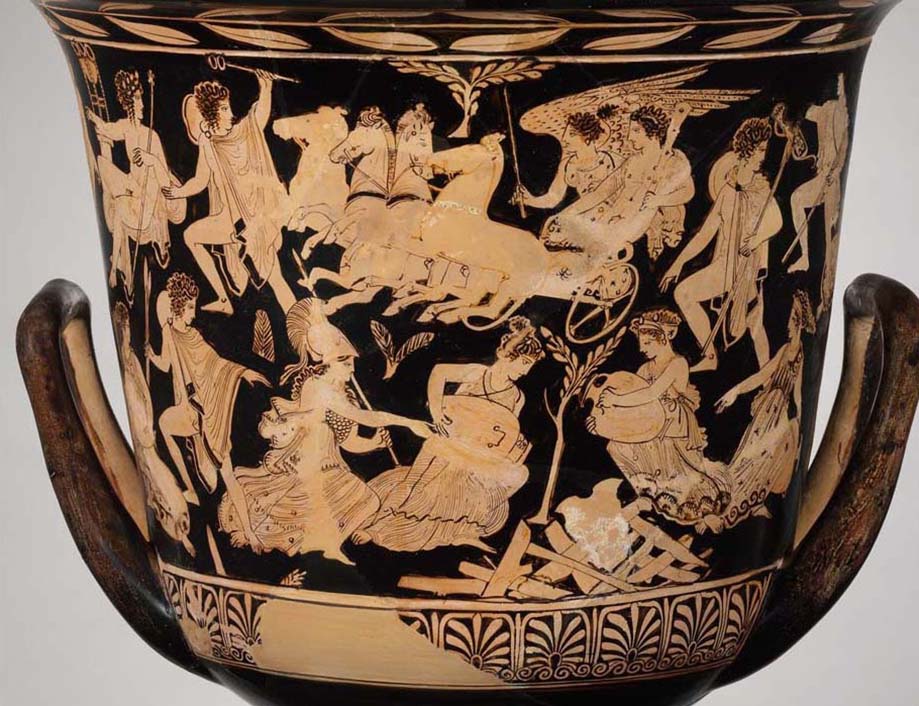
Surprised to find the archer alive, the Greeks balked on what to do next. Odysseus tricked the weaponry away from Philoctetes, but Diomedes refused to take the weapons without the man. Heracles, who had become a god many years earlier, came down from Olympus and told Philoctetes to go and that he would be healed by the son of Asclepius and win great honor as a hero of the Achaean army. Once back in military company outside Troy, they employed either Machaon the surgeon (who may have been killed by Eurypylus of Mysia, son of Telephus, depending on the account) or more likely Podalirius the physician, both sons of the immortal physician Asclepius, to heal his wound permanently.
Philoctetes challenged and would have killed Paris, son of Priam, in single combat were it not for the debates over future Greek strategy. In one telling it was Philoctetes who killed Paris. He shot four times: the first arrow went wide; the second struck his bow hand; the third hit him in the right eye; the fourth hit him in the heel, so there was no need of a fifth shot.
The death of Paris did not end the Trojan War though, and whilst Philoctetes and Neoptolemus were all for continuing the war through battle, other Achaean heroes, who had fought for ten years, instead looked to subterfuge to gain victory.
Thus, the Wooden Horse was built, and when it was wheeled into Troy, by the unknowing Trojans, Philoctetes was present in its hollow belly. Philoctetes was therefore present during the Sacking of Troy, although he was not blamed for any of the sacrilege that took part during the fall of Troy.
Despite being guiltless, Philoctetes struggled to return home, but eventually the Greek hero did return to his kingdom, but like so many other Greek leaders, he found that he was no longer welcome in his own homeland.
Rather than attempt to retake his kingdom though, Philoctetes travelled onwards settling in the area known as Magna Graecia on the Italian Peninsula, where he was said to have founded the cities of Macalla, Petelia and Crimissa.
In Crimissa, Philoctetes was said to have constructed a temple to Apollo where he laid up his famous bow and arrows. In antiquity the death of Philoctetes was never recorded, but in the 12th century AD, the Byzantine poet John Tzetzes told of the hero’s demise as he fought alongside Rhodian colonists in a local war.
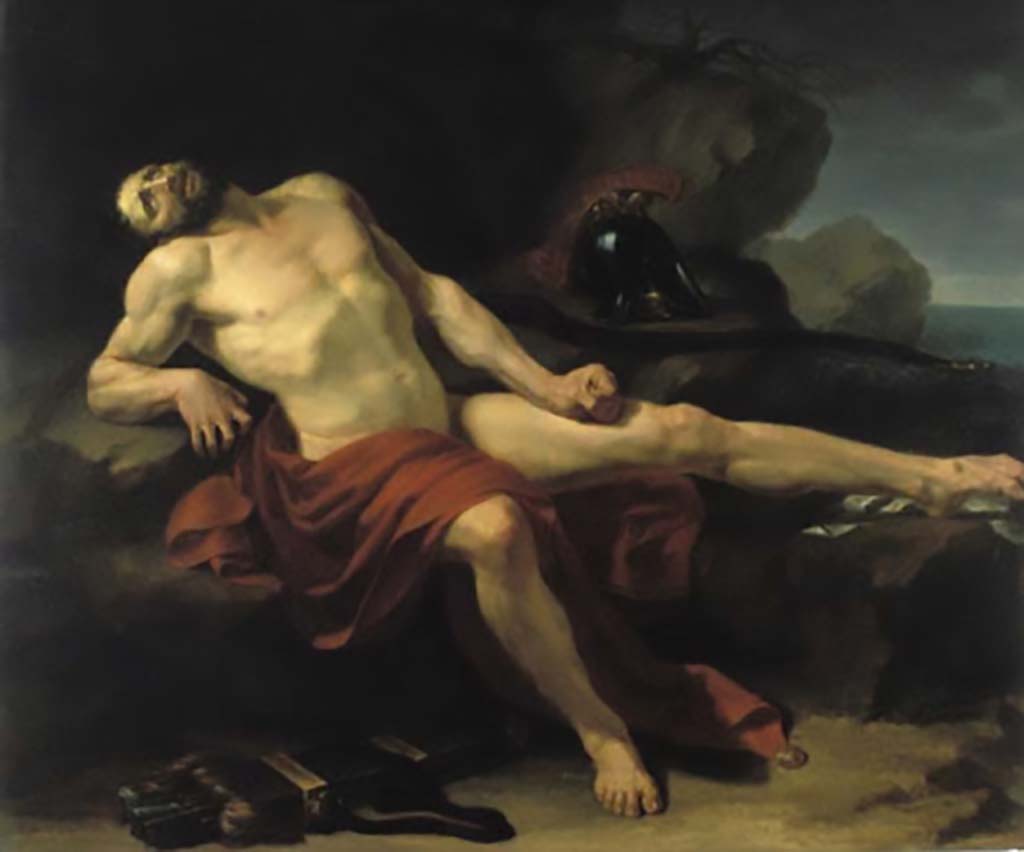
Cult and Cities
The author of the Aristotelian Corpus writes that Philoctetes lived at the Macalla after he returned from the Trojan War, and adds that the hero had deposited there in the temple of Apollo Halius the bow and arrows of Hercules, which had, however, been removed by the Crotoniats to the temple of Apollo in their own city. In addition, the author mention that the Philoctetes is honored among the Sybarites. According to Lycophron, at Macalla the inhabitants built a great shrine above his grave and glorify him as an everlasting god with libations and sacrifice of oxen.
Justin writes that people say that the city of Thurii was built by Philoctetes and his monument is seen there even to his days, as well as the arrows of Hercules which laid up in the temple of Apollo.
Solinus, Strabo and Virgil write that Petilia was established by Philoctetes.
Strabo writes that also Krimisa and Chone were established by Philoctetes. In addition, Strabo write that some of Philoctetes companions fortified Aegesta.
On a barren island near Lemnos there was an altar of Philoctetes with a brazen serpent, bows and breastplate bound with strips, to remind of the sufferings of the hero.
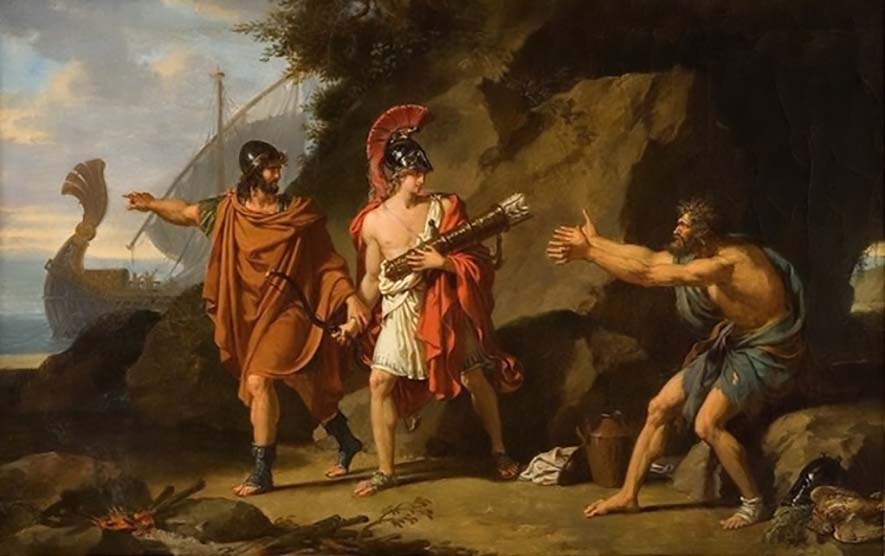
Sources
Homer, Iliad
Homer, Odyssey
John C. Wells, Longman Pronunciation Dictionary, 3rd edition (2008), entry Philoctetes.
Hyginus, Fabulae, 102
Proklos. p. 3.2.
Hyginus, Fabulae 114.
Mayor, Adrienne (2008). Greek Fire, Poison Arrows and Scorpion Bombs: Biological & Chemical Warfare in the Ancient World. New York: The Overlook Press.
Photius, Bibliotheca excerpts - GR
Photius, Bibliotheca excerpts, 190.48 - EN
Aristotelian Corpus, On Marvelous Things Heard, § 27.107
Lycophron, Alexandra, 909
Justin, History of the World, 20.1
Solinus, Polyhistor, 2.10
Strabo, Geography, 6.1.3
Virgil, Aeneid, §3.356
Appian, Mithridatic Wars, 11.77
"Wikipedia"


